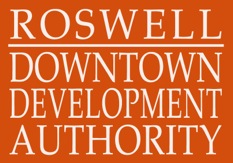September 11, 2016
Questions and Answers:
The RFQ/RFP Process for The Southern Skillet
THERE HAVE BEEN A FEW QUESTIONS PRESENTED ABOUT THE RFQ/RFP PROCESS AND WE WANT TO TAKE A MOMENT AND ANSWER THEM.
What does RFQ and RFP stand for?
RFQ stands for “Request for Qualifications” Respondents to this document will answer specific questions regarding their development experience, financial capacity, current projects, and an understanding of their leadership and their business model.
RFP stands for “Request for Proposal” Respondents to this document, which are specific teams selected from the RFQ process, provide conceptual drawings - including site plans and elevations. They present a “programmed” concept of uses, finishes and materials for the development. The presentation of their concept will be done in a meeting that is open to the public to attend. The DDA intends to select a developer for the Southern Skillet from these teams.
What is the difference?
Responding to an RFQ does not require the level of detail or effort that responding an RFP requires. The RFQ process allows the DDA to select a few teams that have the characteristics, experience and capacity (financial and professionally) to present the conceptual project for the Southern Skillet property and execute a successful development. Those selected teams will then proceed to answer the requirements of the RFP. This process is very detailed, it takes significant professional time and financial investment.
The DDA is using a combined document, containing the RFQ and the RFP, as we move forward to identify a developer for this project. Initially development teams that are interested in being selected as the developer for this project will respond to the requirements of the RFQ. The DDA will meet and review the responses we receive and select those teams to respond to the second part of the document, the RFP.
Why is the DDA opposed to the idea of the City Council having the option to “select up to two of the finalists chosen to respond to the RFP?”
The DDA was asked by City Council to conduct the RFQ/RFP process for the Southern Skillet redevelopment. The DDA signed a ground lease for the project with an option to purchase the property at no less than the price that the city paid for it. The DDA is actually a separate legal entity, sanctioned by the State of Georgia. We have unique tools that can allow us to participate in the financing of such a project and to assure that the project results in a “public benefit.” Allowing a separate entity to become involved creates the appearance, and possibility of bias. This is particularly an issue when the separate entity (City Council) already has the final approval of the project - as it must approve the site plan.
Again, the Mayor and City Council have the final decision making authority on this project as they must approve the site plan.
We are committed to communicating with the public and the Mayor and City Council throughout the process to achieve a fabulous catalytic project for our city.
The community has been unified in their desire for a grocery store or market as one of the most popular uses for this project (and we agree!); will the DDA make sure that the developers put one in the project?
The DDA will inform the potential respondents of the RFQ/RFP of the community’s desires and priorities by using “intent statements” in the initial RFQ/RFP document. We shared some of the working “intent statements” during our recent Town Hall. While these are still being refined, you can see that we are indicating what characteristics we would like to see in a response. We will keep this criteria in mind as we select the teams to respond to the RFP - where we will see a plan and a concept for uses. Those teams who have been successful at delivering such a project in the past and communicate that they share this vision will be at an advantage. However, we cannot definitively say there will be a grocer - as a developer must have a willing tenant, a mix of supporting uses and a plan that is financially viable within the physical and zoning constraints of the project.
If there were to be a profit on the sale of this project - would the DDA keep it? If so, what would it be used for?
IF, and that is VERY unlikely in this scenario, there was a profit from the sale of this property while the DDA held title- yes, the entity of the DDA could keep the profit. Let it be clear that it is the entity of the DDA that would keep the profit - not the Directors of the DDA, who are volunteers. If the DDA were to obtain money from the profit of the sale of the property or fees it charged for funding - that money would be used to accomplish other projects within the boundary area of the Downtown Development Authority Area and in accordance with our mission. Some ways that DDA’s in other cities have used fees they received from projects have included: acquisition of parking lots, improving streetscape, loan programs for facade improvements, loans to establish a trolley system, as well as the running of the organization. The DDA has a fiduciary responsibility to invest in projects and efforts that create economic growth and improve the long-term success of our downtown.
This is taken from the main page of our website:
“Roswell’s DDA was formed to operate as a catalyst for Roswell by coordinating public/private programs that promote the redevelopment and growth of Roswell’s central business district. The DDA works to assure the long-term economic stability of downtown Roswell by maintaining the small town character of the district and supporting values that assure Roswell is a great place to live, work, play, invest and do business.
— http://roswelldda.com
